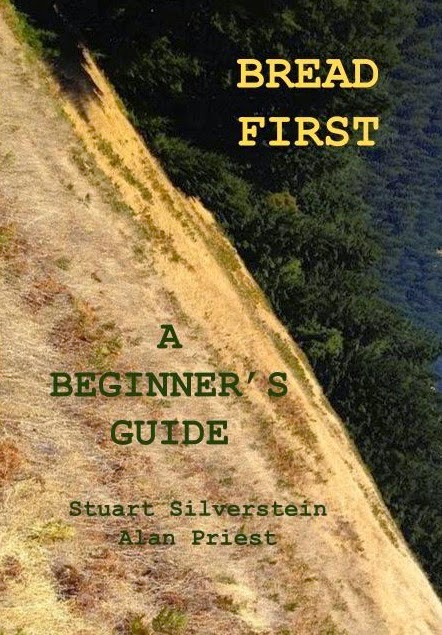If you're a home baker like most of us are, then you'll have to learn to deal with a multitude of variables if you want to bake great bread.
Generally, if I'm baking one loaf of bread, then I need:
3 1/4 cups of flour
1 1/2 cups of water
1 1/2 teaspoons of salt
1/4 cup of sourdough starter.
Sure sounds simple, but if you think about it, it gets tricky. Assuming your flour, water and salt are always about the same, understand that your starter has a mind of its own. It might be strong, weak or somewhere in between. This could even change on a daily basis.
Then there is the matter of water and room temperatures. Cool temperatures mean longer proofing times and generally, better tasting breads. Warm to hot temperatures mean short or very short proofing times resulting in breads that might not taste as good.
For me, baking sourdough breads is a two day process, but I find that during the summer with the warm weather, I can mix up my dough at about 9:00 A.M. and be baking at 3:00 P.M. the same day. Yes, I increase my sourdough measurement to about 1 cup, and that, of course, speeds up the process. You could slow everything down if you want, by using less starter or by putting the dough in the refrigerator to stay cool, but my refrigerator never has enough room.
You could eliminate one very big variable by substituting instant yeast for your starter, but I do think that sourdough breads have more flavor than breads made with instant yeast. Besides, baking with sourdough is more fun.
And speaking of variables, if you're baking in a wood-fired oven as opposed to a conventional oven indoors, then you'll be dealing with a whole set of other variables.
I suggest you use the bread baking books as a guide only. You're not baking for monetary gain. Go with the seasonal flow and embrace all the variables realizing that your day is not quite right unless you're baking bread.
Generally, if I'm baking one loaf of bread, then I need:
3 1/4 cups of flour
1 1/2 cups of water
1 1/2 teaspoons of salt
1/4 cup of sourdough starter.
Sure sounds simple, but if you think about it, it gets tricky. Assuming your flour, water and salt are always about the same, understand that your starter has a mind of its own. It might be strong, weak or somewhere in between. This could even change on a daily basis.
Then there is the matter of water and room temperatures. Cool temperatures mean longer proofing times and generally, better tasting breads. Warm to hot temperatures mean short or very short proofing times resulting in breads that might not taste as good.
For me, baking sourdough breads is a two day process, but I find that during the summer with the warm weather, I can mix up my dough at about 9:00 A.M. and be baking at 3:00 P.M. the same day. Yes, I increase my sourdough measurement to about 1 cup, and that, of course, speeds up the process. You could slow everything down if you want, by using less starter or by putting the dough in the refrigerator to stay cool, but my refrigerator never has enough room.
You could eliminate one very big variable by substituting instant yeast for your starter, but I do think that sourdough breads have more flavor than breads made with instant yeast. Besides, baking with sourdough is more fun.
And speaking of variables, if you're baking in a wood-fired oven as opposed to a conventional oven indoors, then you'll be dealing with a whole set of other variables.
I suggest you use the bread baking books as a guide only. You're not baking for monetary gain. Go with the seasonal flow and embrace all the variables realizing that your day is not quite right unless you're baking bread.






